
Robert Heinrich Palfrader (born 11 November 1968) is an Austrian actor, comedian and author.

Robert Heinrich Palfrader (born 11 November 1968) is an Austrian actor, comedian and author.
Palfrader was born in Vienna, of partly South Tyrolean origin (on his father's side, who hailed from St. Vigil). Originally, he was the owner of a café in Vienna's Josefstadt district. His career in entertainment started when he was discovered by an agency in Germany, where he was working for TV station SAT 1.
In Austria, he initially worked for local radio station Wien 1, before being employed by national broadcaster ORF. There he has mainly done comedy shows, the most popular being echt fett, a hidden camera prank show (based on British format Trigger Happy TV), and Wir sind Kaiser (We are Emperor), a political satire where the Austrian monarchy is restored. There, Palfrader plays the "Emperor Robert Heinrich" based on the Emperors of Austria. [1]
On the theatre stage, he has been playing at Vienna's Rabenhof-Theater and at the city's Volkstheater, in plays by Ödön von Horvath and Ferenc Molnar.

Albert III was a Duke of Saxony. He was nicknamed Albert the Bold or Albert the Courageous and founded the Albertine line of the House of Wettin.

Frederick III was Holy Roman Emperor from 1452 until his death in 1493. He was the penultimate emperor to be crowned by the pope, and the last to be crowned in Rome.
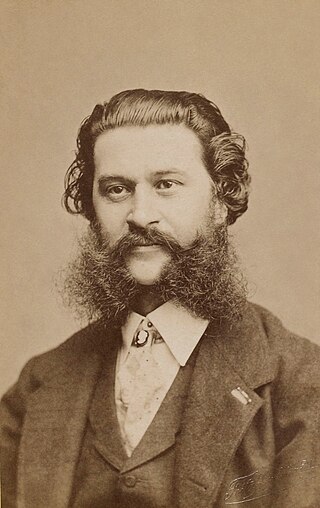
Johann Baptist Strauss II, also known as Johann Strauss Jr., the Younger or the Son, was an Austrian composer of light music, particularly dance music and operettas as well as a violinist. He composed over 500 waltzes, polkas, quadrilles, and other types of dance music, as well as several operettas and a ballet. In his lifetime, he was known as "The Waltz King", and was largely responsible for the popularity of the waltz in Vienna during the 19th century. Some of Johann Strauss's most famous works include "The Blue Danube", "Kaiser-Walzer", "Tales from the Vienna Woods", "Frühlingsstimmen", and the "Tritsch-Tratsch-Polka". Among his operettas, Die Fledermaus and Der Zigeunerbaron are the best known.
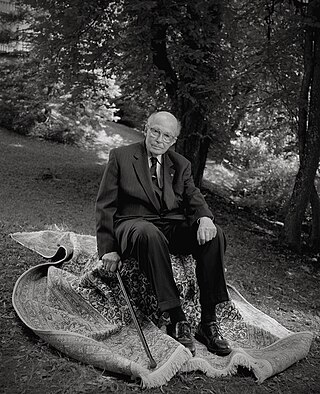
Otto von Habsburg was the last crown prince of Austria-Hungary from 1916 until the dissolution of the empire in November 1918. In 1922, he became the pretender to the former thrones, head of the House of Habsburg-Lorraine, and sovereign of the Order of the Golden Fleece, upon the death of his father. He resigned as Sovereign of the Golden Fleece in 2000 and as head of the Imperial House in 2007.

Matthias was Holy Roman Emperor from 1612 to 1619, Archduke of Austria from 1608 to 1619, King of Hungary and Croatia from 1608 to 1618 and King of Bohemia from 1611 to 1617. His personal motto was Concordia lumine maior.

Charles I was Emperor of Austria, King of Hungary and King of Croatia, King of Bohemia, and the last of the monarchs belonging to the House of Habsburg-Lorraine to rule over Austria-Hungary. The son of Archduke Otto of Austria and Princess Maria Josepha of Saxony, Charles became heir presumptive of Emperor Franz Joseph when his uncle Archduke Franz Ferdinand of Austria was assassinated in 1914. In 1911, he married Princess Zita of Bourbon-Parma. He is venerated in the Catholic Church, was beatified by Pope John Paul II on 3 October 2004, and is known to the Catholic Church as Blessed Karl of Austria.
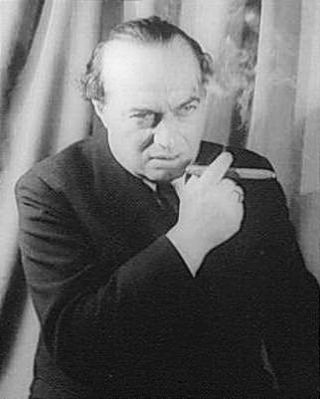
Franz Viktor Werfel was an Austrian-Bohemian novelist, playwright, and poet whose career spanned World War I, the Interwar period, and World War II. He is primarily known as the author of The Forty Days of Musa Dagh, a novel based on events that took place during the Armenian genocide of 1915, and The Song of Bernadette (1941), a novel about the life and visions of the French Catholic saint Bernadette Soubirous, which was made into a Hollywood film of the same name.
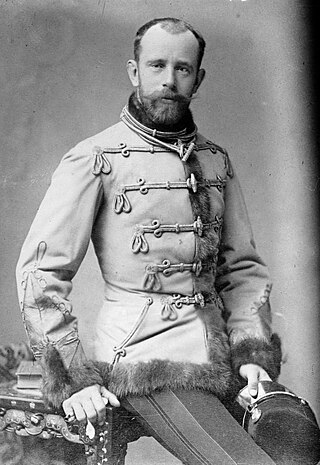
Rudolf, Crown Prince of Austria was the only son and third child of Emperor Franz Joseph I of Austria and Duchess Elisabeth of Bavaria (Sisi). He was heir apparent to the imperial throne of the Austro-Hungarian Empire from birth. In 1889, he died in a suicide pact with his mistress Mary Vetsera at the Mayerling hunting lodge. The ensuing scandal made international headlines.

"Gott erhalte Franz den Kaiser" was a personal anthem to Francis II, Emperor of the Holy Roman Empire and later of the Austrian Empire, with lyrics by Lorenz Leopold Haschka (1749–1827) and music by Joseph Haydn. It is sometimes called the "Kaiserhymne". Haydn's tune has since been widely employed in other contexts: in works of classical music, in Christian hymns, in alma maters, and as the tune of the "Deutschlandlied", the national anthem of Germany.
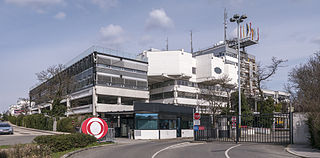
Österreichischer Rundfunk is an Austrian national public broadcaster. Funded from a combination of television licence fee revenue and limited on-air advertising, ORF is the dominant player in the Austrian broadcast media. Austria was the last country in continental Europe after Albania to allow nationwide private television broadcasting, although commercial TV channels from neighbouring Germany have been present in Austria on pay-TV and via terrestrial overspill since the 1980s.
Axel Corti was an Austrian screenwriter, film director and radio host.

Karl Habsburg is an Austrian politician and the head of the House of Habsburg-Lorraine, the former royal house of the defunct Austro-Hungarian thrones. As a citizen of the Republic of Austria, his legal name is Karl Habsburg-Lothringen.
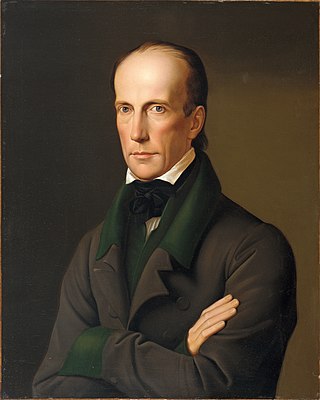
Archduke John of Austria, a member of the House of Habsburg-Lorraine, was an Austrian field marshal and imperial regent (Reichsverweser) of the short-lived German Empire during the Revolutions of 1848.

Maria Anna of Spain was a Holy Roman Empress and Queen of Hungary and Bohemia by her marriage to Ferdinand III, Holy Roman Emperor. She acted as regent on several occasions during the absences of her husband, notably during his absence in Bohemia in 1645.

Reichenau an der Rax is a market town in the Austrian state of Lower Austria, situated at the foot of the Rax mountain range on the Schwarza river, a headstream of the Leitha.
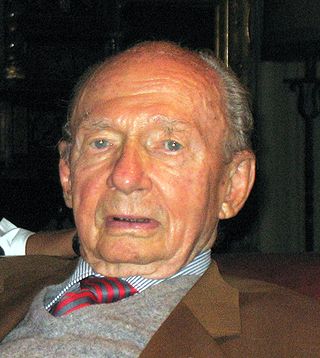
Archduke Felix of Austria was the last-surviving child of Charles I, the last Emperor of Austria, and a member of the House of Habsburg-Lorraine. He was a younger brother of former Crown Prince Otto of Austria, who predeceased Felix by two months.
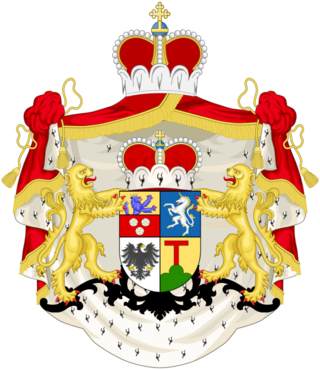
The Henckel von Donnersmarck family is an Austro-German noble family that originated in the former region of Spiš in Upper Hungary. The founder of the family was Henckel de Quintoforo in the 14th century. The original seat of the family was in Donnersmarck, which was then within the Kingdom of Hungary but is now part of Slovakia. The family was ennobled in 1607 by Rudolf II, Holy Roman Emperor. Members of the family were granted other noble titles and privileges in 1636 by Ferdinand II, Holy Roman Emperor, in 1651 by Ferdinand Charles, Archduke of Austria, in 1661 by Leopold I, Holy Roman Emperor, and in 1901 by Wilhelm II, German Emperor. In 1531, the family moved to Silesia. They were expelled from Silesia, along with other German families, in 1945 by the Soviet Army and settled in Germany and Austria.

Heinrich Anton von Angeli was an Austrian historian and portrait painter.
Wir sind Kaiser is a satirical late-night talk show of the Austrian Broadcasting Corporation (ORF), which aired between 2007 and 2010 as part of Thursday night. Through 3sat the show could also be seen in Germany and Switzerland. Measured by market share Wir sind Kaiser was the most successful self-produced weekly broadcast production on ORF 1 between 2007 and 2010. Since the end of 2010, new special episodes are broadcast on a quarterly basis.
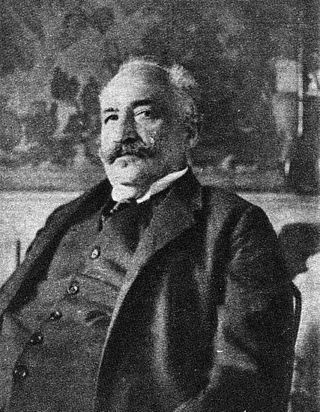
Ignaz Schnitzer was a journalist, translator, librettist and newspaper founder.